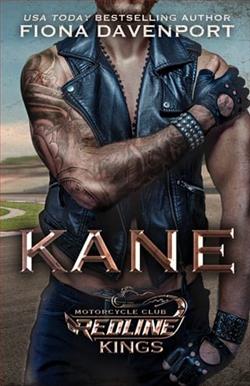Page 20 of Wired Justice
Chapter Eleven
Sophie fiddledwith Ginger’s collar as they drove down the bumpy road into the heart of Oceanview. The potholed road was lined with christmasberry bushes, an invasive species from Brazil that had been aggressively taking over many areas on the Big Island. Most of the ground was rough lava, still being tamed by lichen and small, hardy ferns. Small native ohia tree saplings raised silver-green branches, part of the new landscape.
“I am not certain why they call this Oceanview. I cannot see much ocean from this area,” Sophie said.
Jake nodded. He had been uncharacteristically reserved since they left the store.
Sophie’s phone buzzed, and she saw a text from the number she had found on the bulletin board. “Come meet me at Aweo Park, and we can discuss your concerns. Let me know a time that works for you.”
Sophie held her phone up. “I have an interesting lead here. There was a number on the bulletin board advertising information about the missing people, and the subject just sent me a text message with a place to meet.”
“That could be something.” Jake shot her a glance. “What do you think is going on?”
“I do not know, but anyone who claims to know something about the missing people probably has a motive or information worth investigating.”
“Agreed. Now where are we going? We need that map. This road is getting sketchy.”
The road had split, but no road marker delineated the fork. Sophie opened her phone photo of the storekeeper’s map and traced their route with a finger. “Take a left here.”
The need to navigate forestalled any further discussion. In half an hour, they arrived at a crude archway over a dirt parking area. “Travelers’ Rest” was spelled out at the top, hand painted on a section of wood.
Sophie pointed. “Looks like we’ve arrived. The name over the camping area is a good portent.”
They drove beneath the archway into a crude parking area marked by painted boulders and filled with ramshackle parked vehicles. Jake jerked his head toward the back seat. “Kevlar back there.”
“I don’t think that’s necessary.”
“You’re speculating that we might be venturing into the hunting grounds of a serial, and you’re arguing about wearing Kevlar?”
Jake was right. Who knew what their questions would unleash? Sophie reached in the back for the gear bag. “I don’t want to advertise wearing this.”
“Then put your shirt on over it.”
Sophie bit her lip. “I will. Look the other way and give me some privacy.”
Jake gave a brusque nod and got out of the Jeep, reaching into the back to grab his vest. Sophie stripped her shirt off over her head, feeling self-conscious in her plain black bra. The area was deserted as she slipped the vest on, tightened the Velcro, and then wriggled her tee shirt back down over it.
Jake’s naked upper torso caught her gaze through the window as he similarly changed.
No, she wasn’t looking. It would be wrong to look when she had instructed him not to. But . . . damn. His back was a wall of rippling muscle stippled with scars. Every one of those scars probably told a story of the adventures he’d been through. She loved his stories, and she’d loved touching that warm, solid body the night before . . .
Sophie tore her gaze away.
They checked weapons, got their IDs ready, and Sophie let Ginger out of the back, clipping on her leash. “She can’t hurt anything.”
“Agreed.” Jake shoved his pistol into a hip holster and ran his hands through short dark hair, rearranging its messy spikes. He tugged his shirttail out to cover the gun. “People talk to us more easily with Ginger there. She looks friendly.”
“And we do not?”
“No. We look like cops. Let’s stay focused on asking about Webb and Rayme. Work this like a normal canvass.”
“Do you still think I should take the lead?” The dynamic of Sophie initiating contact and Jake backing her up seemed to work.
“Yeah. Our line is the truth: we’re wanting to talk to these two campers because we think they might have seen our missing girl. And then we can show Julie’s photo, too.”
They found a trail leading between rough boulders toward the camp area. They paused to evaluate at the edge of the settlement.
A central pathway fanned out into rows of crude dwellings made of pallets, plywood, roofing tin, tarps, and transparent plastic. Small, hand-painted signs identified people’s dwellings: Jones. Mikelson. Imua. Rashan.















